SEA Stormwater
Preventing Stormwater Pollution: Solid Waste Operations
Employees who work in our solid waste operations can help reduce water pollution by taking precautions in their daily activities:
- trash collection
- transfer stations/drop off operations
- mulching operations
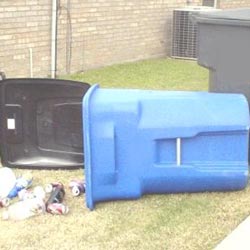
Trash Collection
- Notify residents of persistent problems with scattered trash.
- Watch the area around the hopper to avoid leaving litter behind.
- Pick up any trash that falls from truck during compaction.
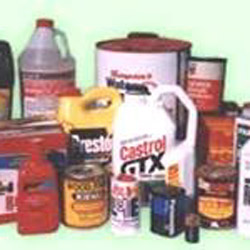
Hazardous Waste
DO NOT pick up hazardous wastes (flammables, toxics, explosives) such as:
- used batteries
- solvents
- fuels
- fluorescent bulbs
- pool chemicals
- pesticides/fertilizers
- fireworks
- ammunition
Notify residents of household hazardous waste collection/disposal opportunities.
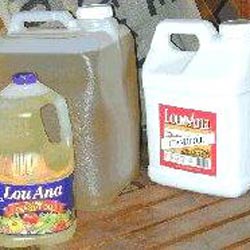
Liquid Waste
- DO NOT pick up liquid wastes such as:
- used motor oil
- paint
- antifreeze
- cooling liquids
- cooking oil
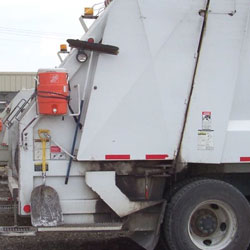
Pollution Prevention Equipment
- Carry spill kits on trash collection trucks and service vehicles.
- Kit should include:
- broom
- shovel
- absorbent
- pop-up pools
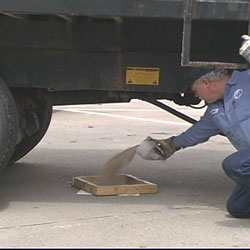
Leaks and Spills
- Check vehicle frequently for leaking fluids and notify supervisor of significant leaks.
- Locate source of spill and prevent further spillage.
- If a major spill or leak occurs, contain the spill using absorbents and take steps to stop the leak if possible.
- Immediately clean up spills to minimize safety hazards and deter spreading.
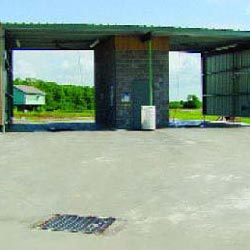
Vehicle Washing
- Make certain hopper drain plugs are always sealed during collection.
- Wash collection trucks only in facilities where wash water drains to the sanitary sewer system or is collected and recycled.
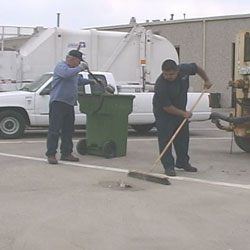
Transfer Stations and Drop-Off Operations
- Pick up all windblown litter and rubbish.
- Provide covered storage areas for solid and liquid wastes that will not be taken to the landfill.
- Dry sweep litter and rubbish periodically, especially during rainy and windy conditions.
- Use litter screens such as:
- chain link fences
- steel mesh
- orange construction fencing.
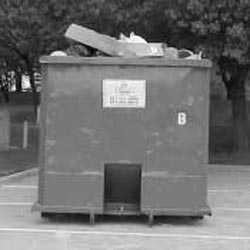
Preventing Runoff
- DO NOT overfill collection receptacles.
- DO NOT hose down w ork areas that drain into storm sewers or drainage ways.
- Conduct facility wash- down activities as directed by the supervisor.
- Retain spills and prevent them from entering the environment.
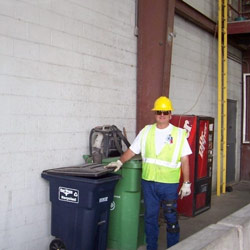
Securing Trash
- Make sure lids on bins and receptacles are closed, especially during rain events.
- Notify haulers and citizens on requirements to cover loads during transport.
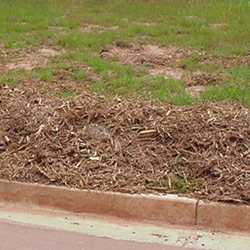
Mulching Operations
- Remove trash and foreign materials from brush prior to grinding.
Place trash and debris in covered containers. - Use litter screens (fencing) to capture windblown trash.
Use mulch berms to filter runoff from work area.